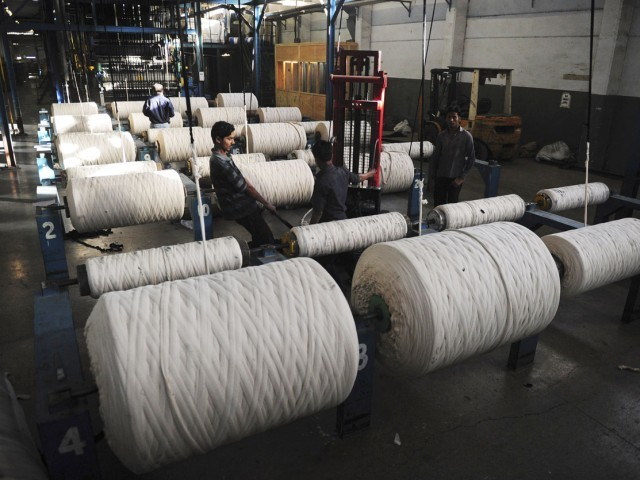Textile sector seeks policy interventions
Govt working on regional tariff parity, framework for tax rationalisation

A delegation of the Pakistan Textile Council (PTC), led by Chairman Fawad Anwar, Asif Tata (Chairman Naveena Group) and CEO Muhammad H Shafqaat, met with Federal Minister for Commerce Jam Kamal Khan.
The meeting focused on tariff and tax rationalisation, energy pricing, green investment and other policy interventions needed for competitiveness, sustainability and growth of the textile and apparel sector.
Chairman Fawad Anwar emphasised that the industry could immediately contribute $3-4 billion in annual exports, in line with the vision and policies of the federal government, if an enabling environment was provided. The commerce minister assured the delegation of the government's commitment to supporting the export sectors in the upcoming federal budget. "We are working towards regional tariff parity," Jam Kamal stated, adding that a committee led by the finance minister had been constituted to develop a sustainable framework for tariff rationalisation.
He stressed, "We must strike a balance – reductions will come with time; however, the government is committed to supporting industrial growth." Specific matters such as the regionally competitive energy tariffs, effective utilisation of the Export Development Fund and immediate clearance of claims under the government's export support schemes were discussed.
The minister acknowledged the critical role of policy consistency and emphasised that supporting the growth of export industry was the key to delivering premium quality and affordable products to international buyers and stimulating broader socio-economic growth and development.
He reiterated the government's resolve to align economic policy with the needs of exporters and underscored the urgency of reforms. "Let the formal industry grow, invest and spur overall industrial growth. That's how the economy thrives," he said.
The Pakistan Textile Council recommended the introduction of Green Credit Schemes to help the sector meet international sustainability requirements and scale up efforts towards industrial decarbonisation.
The delegation highlighted that much of the industry was already shifting to alternative renewable energy sources such as solar, biomass and wind and the government's assistance was vital for maintaining the momentum. The meeting concluded with a mutual commitment to continued dialogue and collaboration to ensure that budgetary measures could reflect the priorities of Pakistan's textile and apparel sector – one of the nation's most vital economic engines.




















COMMENTS (1)
Comments are moderated and generally will be posted if they are on-topic and not abusive.
For more information, please see our Comments FAQ